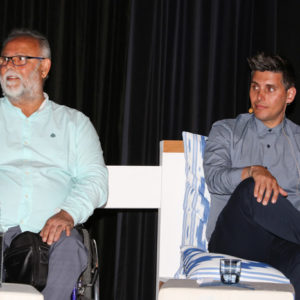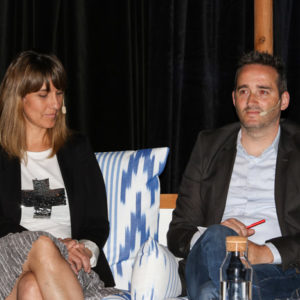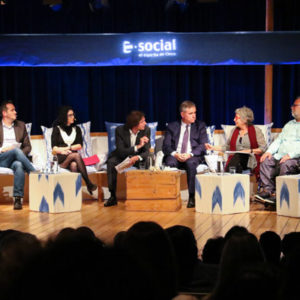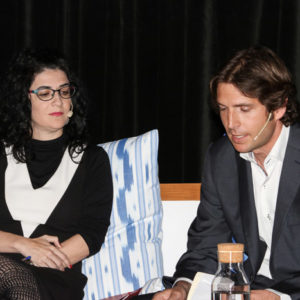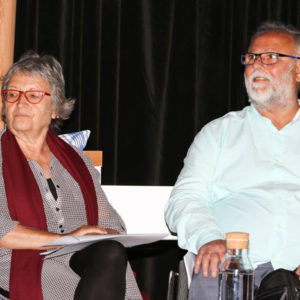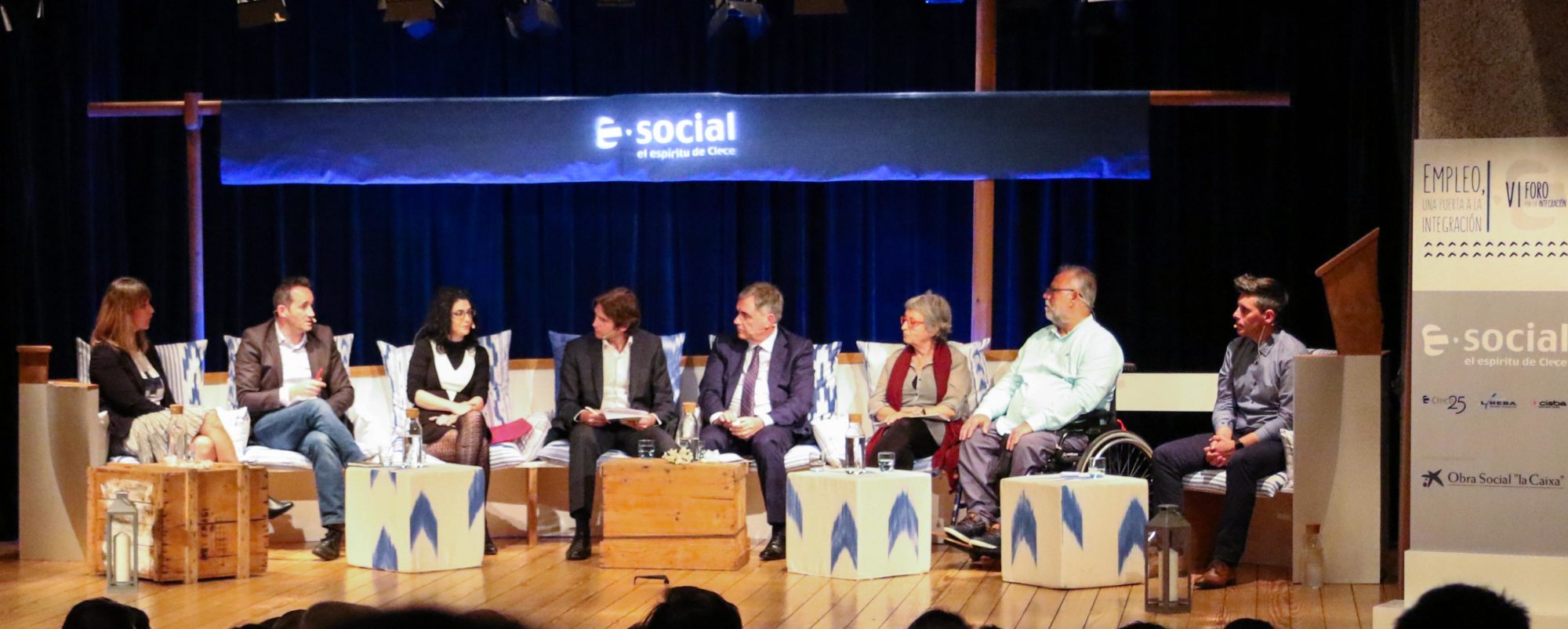
LACK OF WILLINGNESS TO IMPLEMENT THE PROVISIONS OF THE LAW ON WORKPLACE INTEGRATION
One of the main conclusions drawn by the VI Forum “Clece for Integration” which took place last Tuesday, 25th April at the CaixaForum in Palma under the heading “Employment, the Door to Integration” was that achieving compliance with the law on integration into the workplace should be through procurement contracts and the inspection and elimination of physical barriers which would allow people with functional diversity to access their place of work.
The Forum, organized by Clece, brought together different actors involved in the workplace integration of people with functional diversity in order to discuss barriers to and opportunities for work. Representatives from the Public Administration, a private company, and social agents and workers from this collective took part.
The event was attended by Mercè Borràs, Councillor for Welfare and Social Rights of Palma Town Hall; Isabel Castro, Director General of Work, Social Economy and Occupational Health of the Balearic Islands Government; José María González Navarro, Manager of the Municipal Sports Institute (IME) of Palma de Mallorca; Manuel Zafra, ex-President of the Balearic Association for People with Physical Disabilities (ASPROM) – an association which was awarded the Ramon Llull Prize in 2017; and Cristóbal Valderas Alvarado, Clece’s President. Also at the event were María Susan Sánchez Pons and David Juan Nicolás Seguí, who work at the Clece’s Special Employment Centre, CISBA.
The meeting highlighted how employment and unemployment rates for the disabled collective were clearly negative in comparison with those for the entire population. According to the latest INE [Spanish National Statistics Institute] sample on employment behaviour for the disabled collective in 2015, workplace integration is unfinished business for Spanish society. Specifically, the unemployment rate for the collective was ten points higher than the national average (31%).
Isabel Dastro, Director General of Work, Social Economy and Occupational Health of the Balearic Islands Government emphasized that “the administration must guarantee and improve employability conditions for people with functional diversity”. In addition she pointed out the importance which the Government is attaching to the incorporation of social clauses which guarantee that companies bidding for public work must fulfil current legislation with regard to workplace integration and comply with collective agreements. “We want to contract with those companies which deliver more value” she concluded.
José María González Navarro, Manager of the Palma de Mallorca Municipal Sports Institute commented “the first thing is to eliminate physical barriers for people with functional diversity and then to apply social policies which encourage their integration into the workplace”. He also pointed out that “there is a big need for education as currently there is a great lack of knowledge about the problems faced by the disabled collective.”
Cristóbal Valderas, President de Clece stated that “Through invitations to bid for public work, administrations have the capacity to encourage workplace integration and to guarantee that the value of the bid is in line with the quality of the services required. It is not companies who set the conditions, we adapt to what is required in the invitation to bid. “There is a lack of willingness to implement legal provision on workplace integration”.
“We understand that what we do almost constitutes a new category of activity, a fourth sector, which integrates the company’s business activity with a social orientation, therefore guaranteeing the sustainability of the social project” Cristóbal Valderas added.
In the words of Manuel Zafra, the ex-President of the Balearic Association for People with Physical Disabilities (ASPROM) the importance of companies complying with the General Disability Act, which has been in force now for more than 35 years and which still today the majority do not comply with, has become significant. Manuel highlighted the importance of the different administrations who have been the first to fulfil the provisions of this Act.
For Mercè Borràs, Councillor for Welfare and Social Rights at Palma Town Hall, the key is “the importance of collaboration and coordination with companies”.
Clece’s 201 disabled workers in the Balearic Islands
The Forum is part of Clece Social, the company’s social project which is aimed at socially disadvantaged collectives such as people with disabilities, those at risk of social exclusion, women who suffer from gender-based violence, the young long-term unemployed, as well as collectives with special needs such as children and the elderly. For these collectives the company focuses on four lines of action: Employability, Integration, Awareness-Raising and Care.
In this context, Clece’s work on integration in the workplace means that currently more than 9.6% of its workforce is from these collectives. Of its 71,982 employees at national level, 6,926 are integrated from these collectives of which 5,500 have some sort of disability. In the case of the Balearic Islands, where Clece operates through the brands Lireba and the Special Employment Centre CISBA, it has 998 employees. Of these, 198 have some sort of disability, which represents almost 20% of the workforce.
María Susan Sánchez Pons and David Juan Nicolás Seguí are two employees who work in the cafeterias managed by CISBA. Susana was a flight attendant until she was diagnosed with Partial Epilepsy and had to leave her work. “I went for 6 years without finding work, I even had one opportunity where they ruled me out when I told them I was disabled. I started to doubt myself. Finding work was in the end a personal liberation.”
David Juan Nicolás worked in construction until he was diagnosed with Rheumatoid Arthritis and a medical tribunal declared he was no longer able to continue in his position, which was a severe blow. In David’s words “having worked since I was young, and after the problem occurred and prevented me from continuing in my work, I now value work much more.”
For David and Susana “the key is that people don’t give up in the face of adversity and they continue to fight. The effort is worth it” they conclude.








